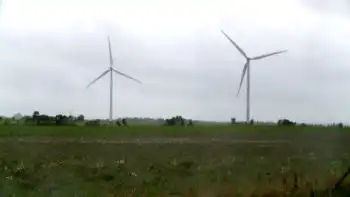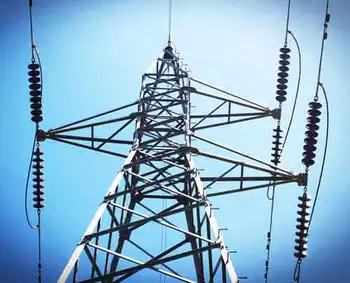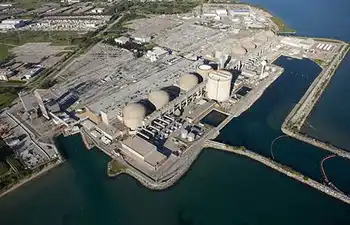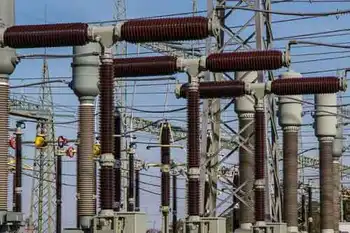Coal power likely to be an issue in election
By Toronto Star
Arc Flash Training CSA Z462 - Electrical Safety Essentials
Our customized live online or in‑person group training can be delivered to your staff at your location.

- Live Online
- 6 hours Instructor-led
- Group Training Available
In the 2003 election campaign, the Liberals promised to close the plants, which supply about 20 per cent of our electricity, by 2007.
"Our coal-burning plants are the worst polluters in Ontario," said the Liberals in their platform. "They create smog and threaten our health."
Once in office and faced with the reality of keeping the lights on, however, the Liberals began backtracking on that promise.
They shut down the Lakeview plant in Mississauga, which had already been slated for closing by the previous Conservative government. But last year they conceded that the remaining four plants – in Nanticoke, Lambton, Thunder Bay and Atikokan – will remain open at least until 2011, and maybe longer.
So if the coal-fired plants are to be kept in operation, shouldn't they be retrofitted with the most up-to-date pollution control equipment to mitigate the damage they cause?
This question was pressed at a legislative committee at Queen's Park on Monday by John Yakabuski, the Conservative energy critic.
Yakabuski noted, with some sarcasm, that the Liberals had earlier blamed the coal-fired plants for causing 668 premature deaths a year in the province and wondered how the government could countenance this toll for another four years (or longer).
Backing up Yakabuski was Energy Probe's Tom Adams, an ardent advocate of coal-fired power. "It's mind-boggling that we don't (spend the money on pollution controls)," said Adams.
Providing the answers was Jim Hankinson, president of Ontario Power Generation, the government-owned operator of the coal-fired plants. Hankinson noted that, while the installation of scrubbers and other pollution controls would remove most of the smog-producing sulphur dioxide and nitrogen oxides from the smokestacks of the coal-fired plants, it would do nothing for carbon dioxide emissions.
Carbon dioxide is one of the greenhouse gases blamed for global warming.
Research is under way on methods to contain carbon dioxide emissions, noted Hankinson, "but we're a number of years away from these kinds of initiatives.... There really isn't much that can be done today."
Outside the committee room, Hankinson threw more cold water on the idea of installing new pollution control equipment by pointing out that Ontario's coal-fired power plants are responsible for just 7 per cent of our smog. Most of it can be attributed to airborne pollution from coal-fired plants in the United States and from cars, trucks and planes.
"It (installing pollution controls on the coal-fired plants) would not make a huge difference," remarked Hankinson.
Nonetheless, suggested Yakabuski, if it would save some lives, shouldn't we be doing it?
Indeed, installing pollution controls at our coal-fired plants seems like a no-brainer. But, perhaps counter-intuitively, environmentalists are arguing against it.
The environmentalists worry that the high cost of installing the pollution control equipment on the coal-fired plants – up to $1.5 billion, according to Hankinson – would lock the government into coal and continuing greenhouse gas emissions.
"You're more or less committing to keeping the plants going for another generation if you do that," says Mark Winfield of the Pembina Institute.
The environmentalists would prefer to accelerate the closing of the coal-fired plants and to spend the money elsewhere. The question is: On what? On converting coal-fired plants to natural gas, on renewables, on conservation, and on co-generation, say the environmentalists. Definitely not on more nuclear power.
The provincial New Democrats have more or less lined up with the environmentalists.
The Liberals, while officially awaiting a report on whether to install pollution controls on the coal-fired plants, are leaning heavily against such an investment. They, too, would prefer to close the coal-fired plants as soon as possible and to invest in conservation programs.
But the Liberals believe that, to keep the lights on, we will also need more nuclear power.
The Conservatives? When he was pressed outside Monday's committee meeting on where his party stands, Yakabuski would say only that "all the options" are being reviewed. "A comprehensive policy will be released at the appropriate time," he added.
But if we follow the line of Yakabuski's questions, the Conservatives will be saying that we should keep the coal-fired plants open and invest in pollution controls.
And the debate will begin.











